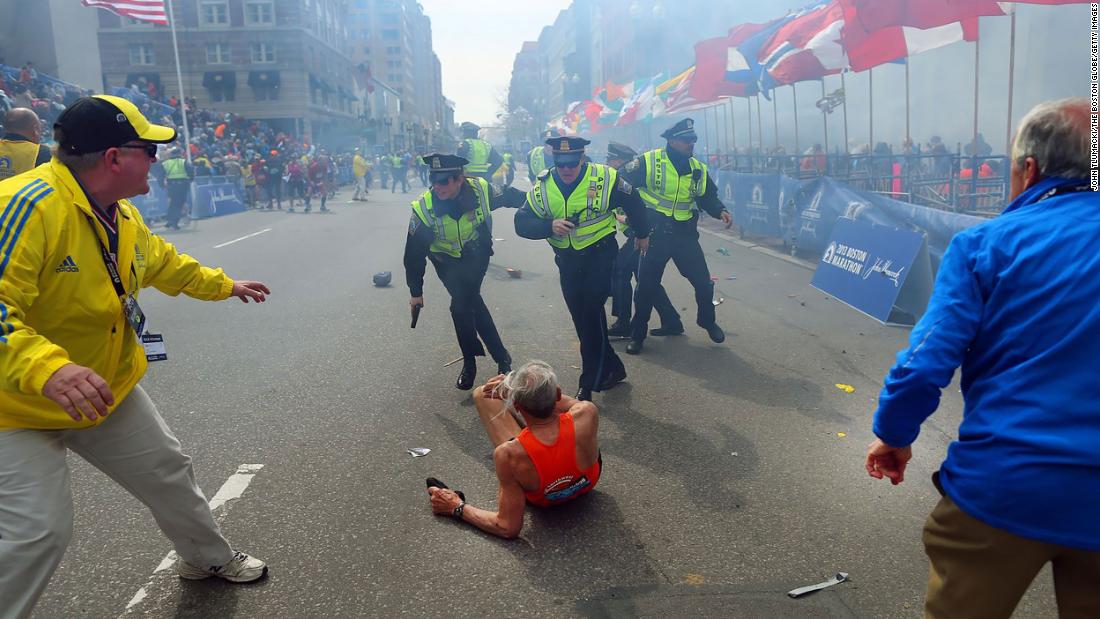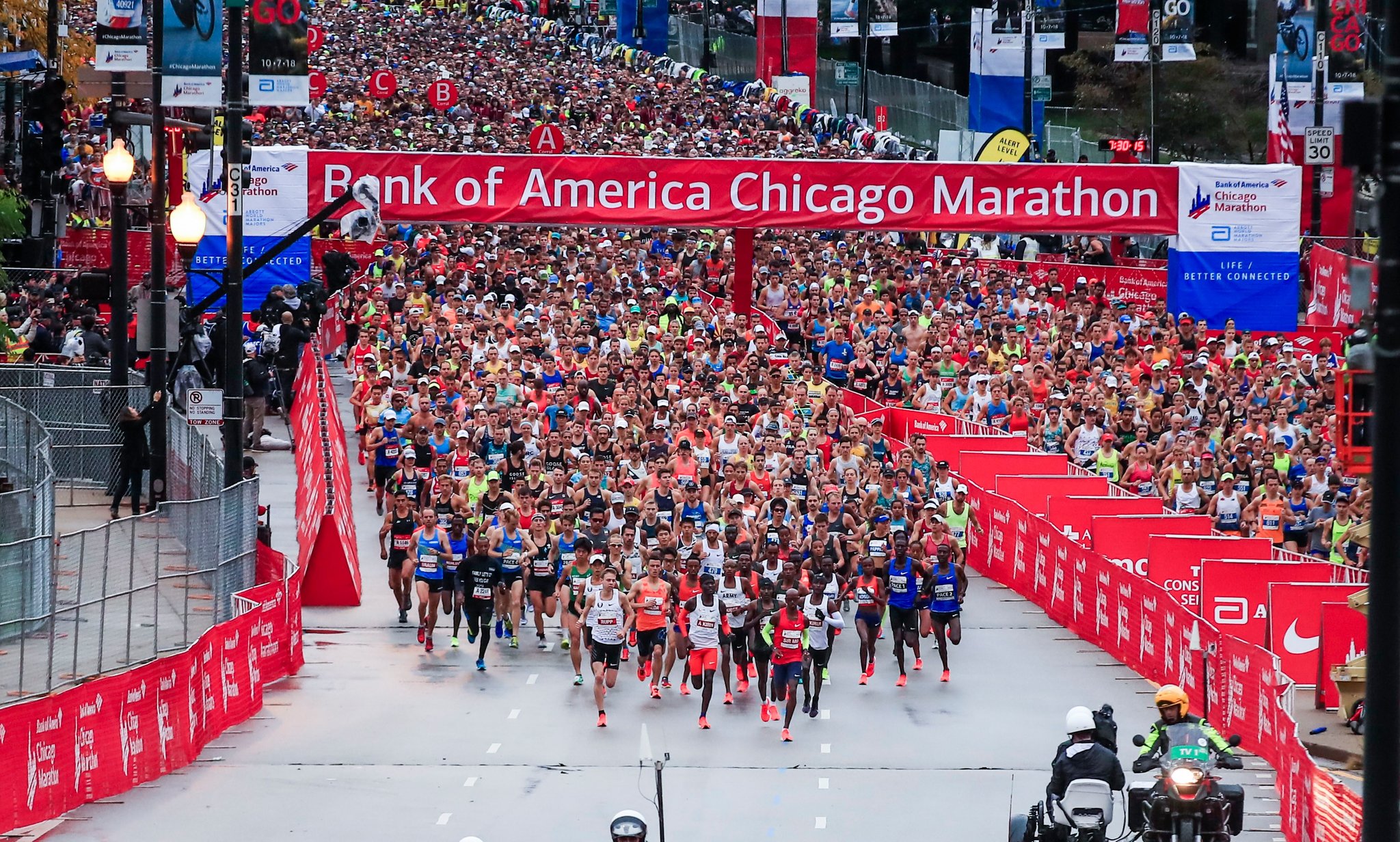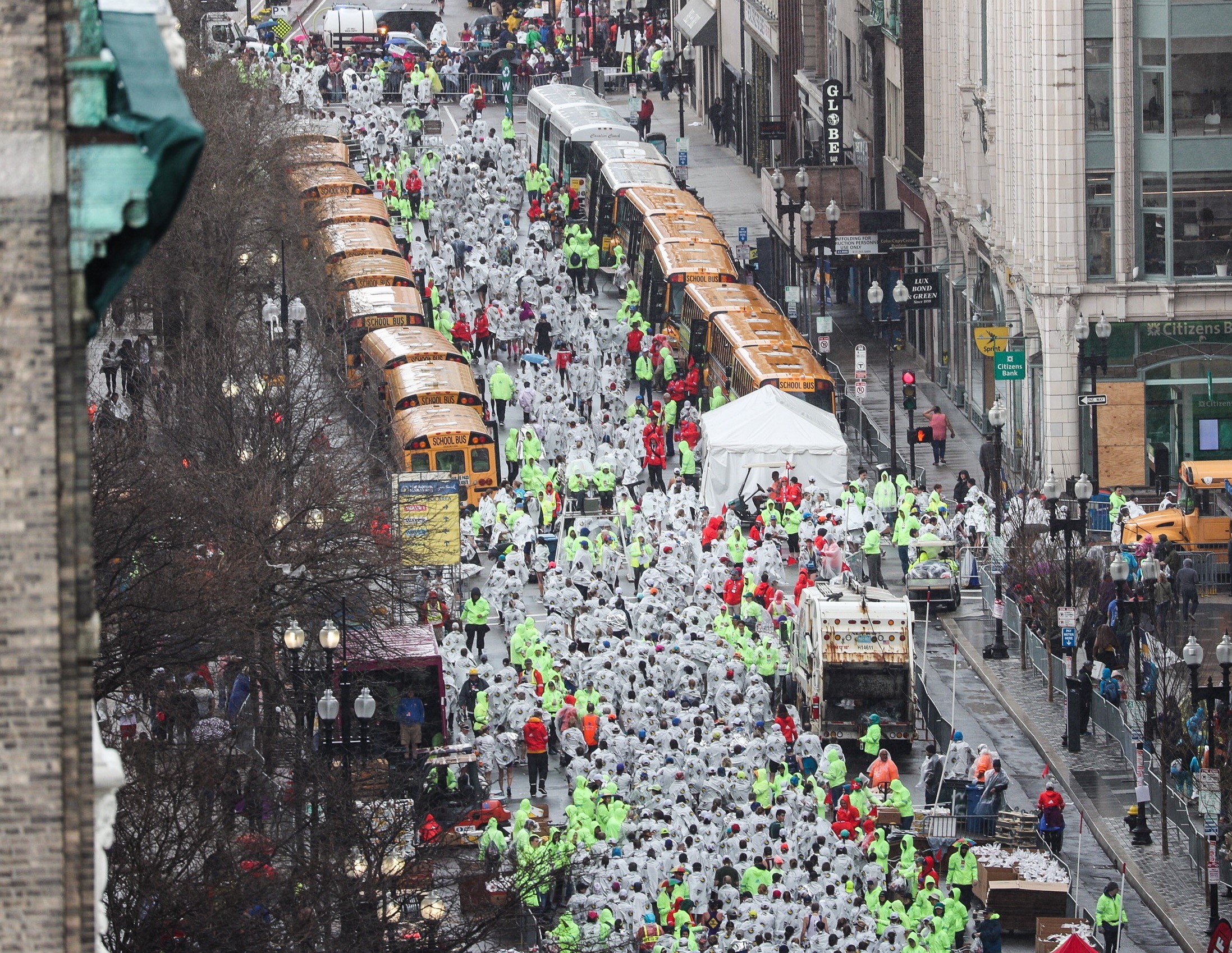The Famed Boston Marathon: A Historical Perspective
The Boston Marathon, established in 1897, is the world’s oldest annual marathon and one of the most prestigious road racing events. Its rich history and unique traditions have made it a beloved institution in the running community, drawing thousands of participants and spectators from around the globe. The 26.2-mile (42.2 km) course, steeped in history, takes runners through eight Massachusetts cities and towns, beginning in Hopkinton and culminating in the heart of Boston at Copley Square. The marathon’s challenging terrain, including the infamous Heartbreak Hill, tests the mettle of even the most seasoned athletes. The enthusiasm and camaraderie that define the event have solidified its status as a premier showcase of human endurance and determination.
Delving into the Mileage: How Long is the Boston Marathon?
The question “How many miles are in the Boston Marathon?” is a fundamental one for both aspiring participants and running enthusiasts. Established in 1897, the Boston Marathon spans a distance of 26 miles and 385 yards, or 42.195 kilometers, making it one of the longest and most challenging races in the world. This iconic marathon, known for its rich history and unique course features, attracts thousands of runners each year who aim to conquer its challenging terrain and fulfill a personal dream.
Comparative Analysis: Boston Marathon vs. Other Major Marathons
When discussing the distance of the Boston Marathon, it’s worth comparing it to other prominent marathons around the world. For instance, the London Marathon, TCS New York City Marathon, and Berlin Marathon all share the same 26.2-mile (42.195 km) distance as the Boston Marathon. However, each race offers a unique experience due to variations in course layout, elevation changes, and local attractions.
The Boston Marathon, in particular, stands out for its challenging terrain, which includes the notorious Heartbreak Hill. This grueling ascent, located in the town of Newton, occurs around the 20-mile (32 km) mark and can test even the most experienced runners’ endurance and spirit. The marathon’s rich history, prestigious status, and qualifying time requirements further distinguish it from other marathons.
Training Tips for Conquering the Boston Marathon Distance
Embarking on marathon training requires careful planning, dedication, and a well-structured approach. For those wondering, “How many miles are in the Boston Marathon?”, understanding the race’s distance is only the first step. To prepare, consider implementing the following training strategies, nutrition tips, and recovery techniques.
Structured Training Programs
Adopt a structured training program tailored to your fitness level, running experience, and goals. A typical marathon training plan spans 12 to 20 weeks, gradually increasing your weekly mileage and incorporating long runs, speed workouts, and recovery days.
Nutrition and Hydration
Proper nutrition and hydration are crucial for optimal performance. Focus on consuming a balanced diet rich in carbohydrates, proteins, and healthy fats. During long runs, practice consuming sports drinks, energy gels, or other preferred fuel sources to maintain energy levels.
Cross-Training and Strength Training
Incorporate cross-training and strength training exercises to improve overall fitness and reduce the risk of injury. Activities such as swimming, cycling, or yoga can enhance cardiovascular health and flexibility, while strength training can build endurance and power.
Tapering and Recovery
In the weeks leading up to the marathon, gradually reduce your training volume to allow your body to recover and prepare for race day. Implement active recovery techniques, such as light jogging, stretching, or foam rolling, to aid in muscle repair and reduce soreness.
Listening to Your Body
Understanding your own limits and capabilities is essential when training for a long-distance race. Pay attention to signs of fatigue, injury, or overtraining, and adjust your training plan accordingly. Remember, consistency and patience are key to successful marathon training.
The Boston Marathon Experience: Tales from Participants
The Boston Marathon is not just a race; it’s an emotional journey filled with personal triumphs, camaraderie, and unforgettable experiences. Countless participants have stories that encapsulate the spirit of this iconic event.
Overcoming Adversity
Take, for example, the story of Jane Doe, who faced numerous obstacles leading up to the marathon. Despite setbacks and injuries, Jane remained determined and persevered, crossing the finish line with a time of 3:45:32. Her journey serves as a testament to the resilience and fortitude of Boston Marathon participants.
Running for a Cause
Many runners also participate in the Boston Marathon to raise awareness and funds for various charitable organizations. John Smith, a first-time participant, ran in honor of his late father, who passed away from cancer. By the end of the race, John had raised over $10,000 for cancer research, making his Boston Marathon experience even more meaningful.
Embracing the Marathon Spirit
The Boston Marathon is also about the collective spirit of the running community. Runners often form bonds and support each other throughout the race, creating an atmosphere of unity and camaraderie. For Jane, John, and countless others, the marathon represents an opportunity to connect with fellow runners and celebrate their shared love for the sport.
Marathon Tourism: Exploring Boston and Its Surroundings
Attending the Boston Marathon is an excellent opportunity to immerse yourself in the city’s rich history, culture, and landmarks. In addition to witnessing the race, take advantage of the vibrant atmosphere and explore the area’s many attractions.
Historic Sites and Museums
Boston is home to numerous historic sites and museums, including the Freedom Trail, Fenway Park, and the Museum of Fine Arts. These destinations offer a glimpse into the city’s past and present, providing a well-rounded experience for visitors.
Running Routes and Parks
For runners looking to train or enjoy a leisurely run, Boston boasts several scenic running routes and parks. The Charles River Esplanade, the Emerald Necklace park system, and the Boston Common are popular choices, offering picturesque views and a chance to stretch your legs.
Local Cuisine and Entertainment
No visit to Boston would be complete without sampling the city’s renowned seafood, Italian cuisine, and craft beer. Additionally, take in a show at one of the many theaters or enjoy live music at a local venue to fully experience the city’s vibrant arts scene.
The Science Behind Marathon Running: Physiological Adaptations and Performance
Marathon running demands significant physical and mental preparation. During marathon training and racing, the human body undergoes various physiological adaptations that enhance endurance, strength, and overall performance.
Cardiovascular Adaptations
Regular, intense endurance training leads to improvements in the cardiovascular system. The heart muscle strengthens, and stroke volume increases, allowing the body to deliver more oxygen-rich blood to working muscles. Furthermore, the body becomes more efficient at extracting and utilizing oxygen, enhancing aerobic capacity and endurance.
Musculoskeletal Adaptations
Marathon training also stimulates musculoskeletal adaptations. As runners increase their mileage, muscle fibers become more resistant to fatigue, and muscle capillary density improves, facilitating nutrient and waste product exchange. Additionally, mitochondrial content and efficiency increase, further boosting aerobic metabolism and energy production.
Metabolic Adaptations
Prolonged endurance training can lead to metabolic adaptations that enhance fat oxidation and energy utilization. The body learns to rely more on fat as a fuel source during long, slow runs, sparing glycogen stores and delaying the onset of fatigue.
Mental Resilience
Marathon running is as much a mental challenge as it is a physical one. Successful marathoners develop mental resilience and learn to cope with discomfort, pushing through adversity and maintaining focus during long, grueling races.
The Role of Hydration and Nutrition
Proper hydration and nutrition are crucial for optimal marathon performance. Consuming a balanced diet, rich in carbohydrates, proteins, and healthy fats, provides the necessary energy and nutrients to support training and recovery. During long runs and races, maintaining adequate hydration and consuming easily digestible carbohydrates can help sustain energy levels and prevent bonking.
Celebrating the Boston Marathon Legacy: Reflections and Future Prospects
The Boston Marathon has left an indelible mark on the running community, inspiring generations of athletes to push their limits and embrace the marathon spirit. As one of the world’s oldest and most prestigious marathons, it has played a pivotal role in promoting health, fitness, and personal achievement.
A Lasting Impact
The Boston Marathon’s legacy extends beyond its rich history and storied traditions. It has inspired countless individuals to take up running and pursue their own marathon dreams. Moreover, the event has raised millions of dollars for charitable organizations, further solidifying its status as a force for good in the community.
Embracing the Marathon Spirit
To embrace the marathon spirit is to embody the values of perseverance, determination, and camaraderie. The Boston Marathon embodies these qualities, fostering a sense of unity and shared purpose among participants, spectators, and volunteers alike. By celebrating the achievements of past and present runners, we encourage future generations to take up the challenge and experience the transformative power of long-distance running.
Consider Participating
If you’re inspired by the tales of personal triumph and the spirit of community that define the Boston Marathon, consider participating in this iconic race or other long-distance events. With proper training, dedication, and a commitment to your goals, you too can experience the thrill of crossing the finish line and becoming a part of marathon history.








